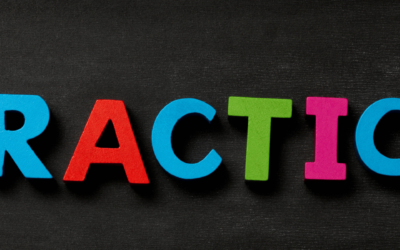As you prepare for your SHL assessment, you'll quickly realize that practice tests are your secret weapon. They're not just a way to familiarize yourself with the format; they're a crucial tool for honing your skills and boosting your confidence. You'll learn to manage your time effectively, identify your strengths and weaknesses, and develop strategies to tackle even the most challenging questions. But there's more to mastering SHL tests than just repetitive practice. To truly excel, you'll need to understand the nuances of each test type and tailor your approach accordingly. Let's explore how you can leverage practice tests to achieve peak performance.
Understanding SHL Test Formats
When it comes to succeeding in SHL tests, understanding the various test formats is crucial. SHL offers a wide range of assessments, each designed to evaluate specific skills and aptitudes.
You'll encounter numerical reasoning tests that assess your ability to interpret data and perform calculations. Verbal reasoning tests will challenge your comprehension and analytical skills, while inductive reasoning tests measure your problem-solving abilities.
You'll also find mechanical reasoning tests for technical roles, situational judgment tests to evaluate your decision-making skills, and personality questionnaires to assess your work style and preferences.
It's essential to familiarize yourself with the specific format of the test you'll be taking. Pay attention to the question types, time limits, and scoring methods.
Some tests are adaptive, meaning the difficulty level changes based on your performance. Others have a fixed set of questions. You may encounter multiple-choice questions, drag-and-drop exercises, or free-text responses.
Time Management Techniques
Given the time-pressured nature of SHL tests, mastering effective time management techniques is essential for success. Start by familiarizing yourself with the test structure and time limits for each section. Develop a strategy to allocate your time wisely across all questions.
Don't spend too long on any single question; if you're stuck, move on and return to it later if time allows.
Practice pacing yourself during mock tests to get a feel for how long you should spend on each question type. Use a timer to track your progress and stick to your allocated time per section.
Skim through all questions quickly at the beginning to identify easier ones you can answer quickly, then tackle more challenging questions.
Learn to recognize when you're overthinking a question and train yourself to make decisive choices. If you're unsure, use the process of elimination to narrow down your options.
Effective Practice Strategies
Effective practice is the cornerstone of SHL test success, building upon the time management skills you've developed. To maximize your performance, focus on quality over quantity. Don't just take test after test; instead, analyze your mistakes and identify patterns in your weak areas.
Use official SHL practice materials whenever possible, as they'll most accurately reflect the real test format and difficulty. If you can't access official resources, seek out reputable third-party practice tests. Create a study schedule that targets your weaknesses while reinforcing your strengths.
Simulate test conditions during your practice sessions. Time yourself strictly, use similar equipment (e.g., calculator if allowed), and minimize distractions. This will help you acclimate to the pressure of the actual test environment.
Vary your practice methods. Mix full-length practice tests with focused sessions on specific question types or subject areas. Use flashcards for quick review of key concepts and formulas.
Consider working with a study group or tutor to gain new perspectives and insights.
Identifying Strengths and Weaknesses
To truly excel on SHL tests, you must dive into an honest assessment of your abilities. Start by thoroughly reviewing your practice test results, paying close attention to questions you've answered incorrectly or struggled with. Identify patterns in your mistakes – are you consistently stumbling on certain question types or subject areas?
Create a list of your strengths and weaknesses based on these observations. You might excel at numerical reasoning but struggle with verbal comprehension. Or perhaps you're quick with abstract reasoning but slow on mechanical aptitude questions. Be specific and objective in your analysis.
Once you've pinpointed your weak areas, prioritize them for focused improvement. Allocate more practice time to these challenging sections, seeking out additional resources or targeted exercises.
Don't neglect your strengths, though – continue honing these skills to maintain your edge.
Consider timing as well. If you're consistently running out of time on certain sections, work on improving your speed and efficiency. Conversely, if you're finishing too quickly and making careless errors, practice slowing down and double-checking your work.
Confidence Building Exercises
While identifying your strengths and weaknesses is important, building confidence is equally vital for SHL test success. To boost your self-assurance, start by setting realistic goals for each practice session. Celebrate small victories as you progress, reinforcing positive emotions associated with test-taking.
Visualization techniques can help you imagine yourself performing well under pressure. Spend a few minutes each day picturing yourself calmly answering questions and completing tasks with ease. This mental rehearsal can reduce anxiety and improve your actual performance.
Practice positive self-talk by replacing negative thoughts with affirming statements. Instead of "I can't do this," tell yourself, "I'm well-prepared and capable." Create a list of personal affirmations related to your test-taking abilities and review them regularly.
Time management exercises can also boost your confidence. Set up mock tests with strict time limits, gradually increasing the pressure as you improve. This will help you feel more in control during the actual exam.
Lastly, seek feedback from others who've taken SHL tests. Their insights and encouragement can provide valuable perspective and reinforce your belief in your abilities.
Conclusion
You've now got the tools to excel in your SHL assessment. Remember, practice makes perfect. Don't just take tests; analyze your results and refine your approach. Time yourself, simulate test conditions, and focus on your weak spots. As you build confidence, you'll see your performance improve. Stay positive and keep at it. With consistent practice and smart strategies, you'll be ready to tackle the real test with ease.






0 Comments